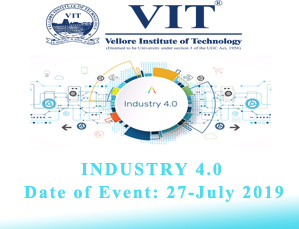- Home
- All Events
- Industry 4.0

Industry 4.0 is a term often used to refer to the developmental process in the management of manufacturing and chain production. The term also refers to the fourth industrial revolution. The fourth industrial revolution takes the automation of manufacturing processes to a new level by introducing customized and flexible mass production technologies. This means that machines will operate independently, or cooperate with humans in creating a customer-oriented production field that constantly works on maintaining itself. The machine rather becomes an independent entity that is able to collect data, analyze it, and advise upon it. This becomes possible by introducing self-optimization, self-cognition, and self-customization into the industry. The manufacturers will be able to communicate with computers rather than operate them. The rapid changes in the information and communication technologies (ICT) have broken the boundaries between virtual reality and the real world. The idea behind Industry 4.0 is to create a social network where machines can communicate with each other, called the Internet of Things (IoT) and with people, called the Internet of People (IoP). This way, machines can communicate with each other and with the manufacturers to create what we now call a cyber-physical production system (CPPS). All of this helps industries integrate the real world into a virtual one and enable machines to collect live data, analyze them, and even make decisions based upon them. Industry 4.0 will truly revolutionize the way manufacturing processes work. However, it’s important to weigh the advantages and the challenges that companies may face. This workshop targets at equipping the participants with the fundamentals of Industry 4.0 and its role in the present era of digital transformation.

